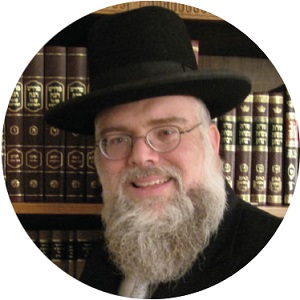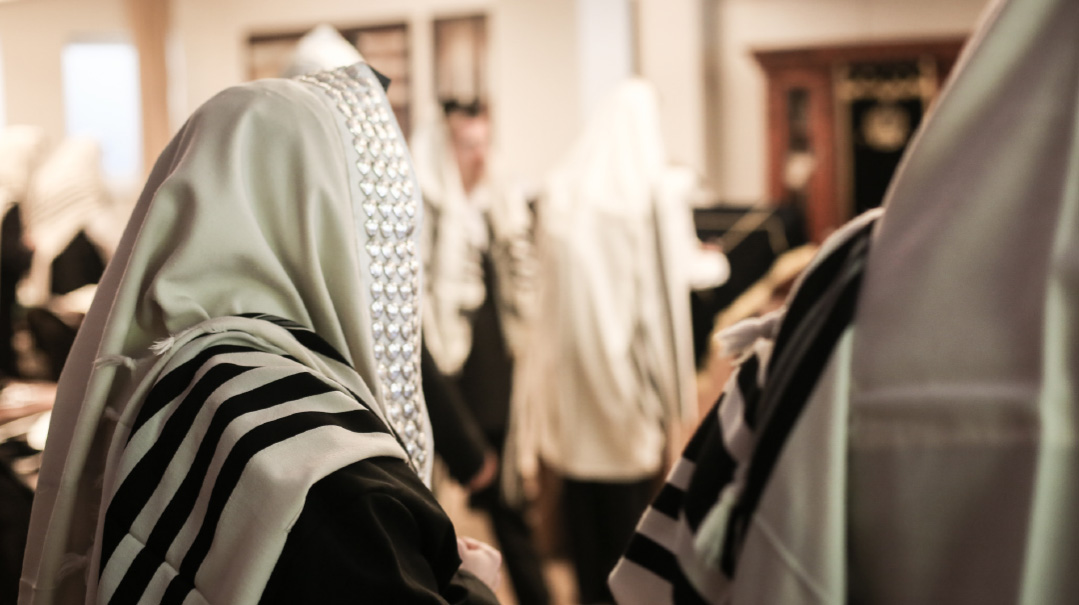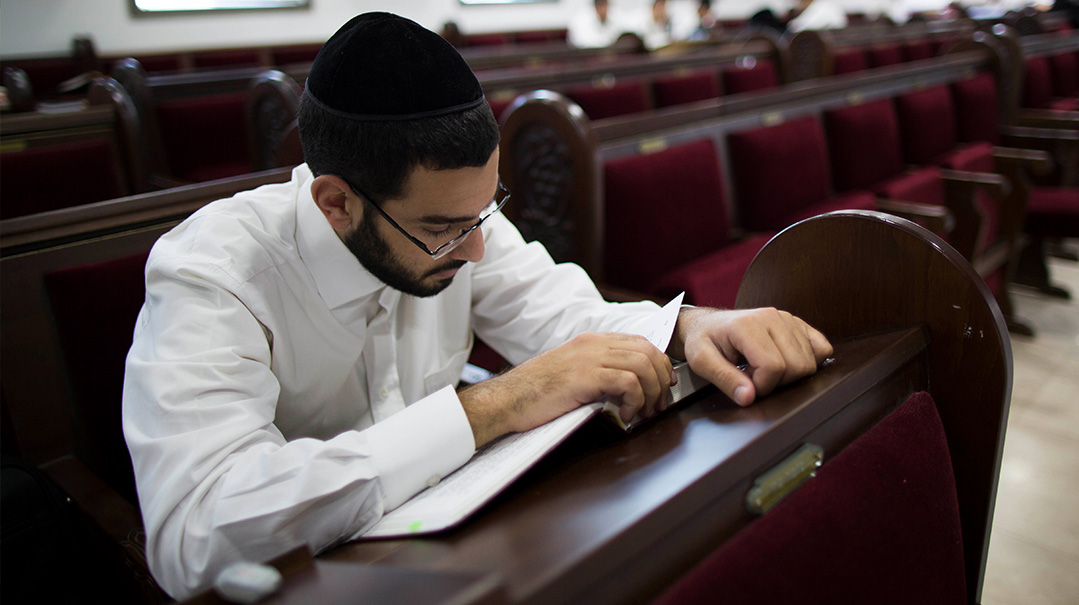Vi Elult’zich?


I t’s a tradition. I can’t quite remember when it began but Elul cannot possibly commence without it.
Erev Shabbos Mevarechim Elul the phone will ring and the caller ID will flash a rarely seen area code in the Boston area. It belongs to practically the only person I know who has a cell phone with that area code and I pick up the phone knowing exactly who it is and what he will say: “Elul Stantzye (Elul station)!”
It is a clarion call whose roots go back to the great mussar yeshivos of yesteryear and nobody says it better than my yedid nefesh (and optometrist of a thousand miles away) Dr. Dovid Soll. It’s the proclamation that summer vacation is over fun and games are on hold and it is time to once again get down to what is important in life. I treasure these annual conversations; they are my oxygen for the six weeks to follow. A woman who occasionally davens in my shul let me know that she makes it her business to be there every Shabbos Mevarechim Elul to hear those two words — “Elul Stantzye”!
What does it mean? Why does it send such chills up our spines akin to “Rosh Chodesh Elul yiheye…”?
I can’t be sure what the baalei mussar in Kelm (or wherever it may have begun) had in mind but it seems self-evident that the analogy to a train coming into the station is as appropriate as it is stark. The train moves fast very fast with no regard for whatever may be in its way. And then it happens. It has arrived at its station and it has stopped. No more chugging with reckless abandon. If the traveler needs to transfer to yet another train to reach his destination he must now disembark and make a change to get to where he needs to go. He can’t merely stay onboard for the ride anymore he has to make a move.
Elul Stantzye! Oy are we moving faster and faster too often with reckless abandon. It’s time to stop and ask “Do we need to change our direction?”
But what do we do other than murmur “It’s Elul already?” — almost as though it is an inconvenience that we must deal with but wish we could avoid. We can’t. We have to make a full stop just like the proverbial train. Then we recognize the doors of opportunity opening wide and we must make the move.
When I was a bochur in Ponevezh back in 1982 a friend got engaged and due to his future in-laws’ blessed overload of making another wedding at the same time the chasunah could only be scheduled during Elul. Everyone including the newly minted chassan knew that no chasunahs was as much a part of the Elul atmosphere in Ponovezh as learning Shaarei Teshuvah during mussar seder. Having no choice the chassan approached Rav Shach ztz”l and asked if they could bend rules in light of his in-laws’ conflict. The Rosh Yeshivah responded with a puzzled look and informed the chassan that there is no rule in Ponevezh that a bochur cannot get married during Elul — rather the rule is that nobody is allowed to attend! Elul Stantzye! (After some begging a small contingent of friends were permitted to attend.)
The Avnei Milu’im (Rav Aryeh Leib HaKohen Heller author of Ketzos Hachoshen) penned a teshuvah one Erev Succos and he excused himself for postponing his answer (about the plight of an agunah no less) for so long. “Indeed as the days of ratzon and tachanunim were approaching and one cannot daven from a mind preoccupied with anything but clear halachic decisions I could not investigate the matter [properly]… although now I don’t have time… since it is pertinent to halachah l’maaseh I have no choice.” This great gaon and tzaddik could not find the capacity in his genius mind to release an agunah from her plight because he could not concentrate simultaneously on learning and davening on the level that Elul and Tishrei demand. Elul Stantzye!
Rav Shlomo Wolbe ztz”l related (quoted in sefer Kedosh Elul) that one Elul he was walking in the street in the town of Mir and he saw two irreligious boys arguing with each other until they actually exchanged blows. Suddenly an elderly woman appeared on the scene and began to scream at them “Elul!” The boys ran away as if she had told them that the police were on their tracks! Such was the ruach of Elul in Mir. Elul Stantzye!
What should we be thinking those of us who do not live in Mir or Bnei Brak and who do not pen teshuvos about agunos? Do we merely pass this all off as larger-than-life examples of a bygone era too distant for us to attempt to emulate?
Or do we perhaps need to rethink our own Eluls and check our itineraries as inconvenient or painful as that may be to make sure that we are focused on the correct things?
Mefarshim point out that in translating the plan of the Meraglim to spy on the land (“lasur es ha’aretz”) the Targum uses the words: l’alala yas ara. The root of l’alala is so similar to Elul that it implies that our mandate is to spy as well during this month. On who? On ourselves.
During Elul we have to ask ourselves: Are we on the right track (pun intended)? Do we need to change direction completely?
Rav Nochum Abba Grossbard ztz”l related that in the city of Suvalk businesses would begin closing progressively earlier from Rosh Chodesh Elul so that halfway through the month even the simplest balebatim spent their entire days in shul engaged in learning or saying Tehillim.
I fondly recall Rav Chaim Berman the legendary masmid of Ponovezh approaching me and asking “Vi Elult’zich?” This phrase does not preserve the same punch in English but it roughly translates as: “How’s it Eluling?” These few words were laden with layers of meaning: “How are you feeling?” “How are you working on yourself?” “How are you growing?” and even “How are you living?”
Shouldn’t we all ask ourselves: Vi Elult’zich?
One modest suggestion for starters: With full understanding of the need for Torah and chesed institutions to replenish their accounts after a summer vacation fundraising drought how much nachas ruach can we bring Hashem and how much siyata d’Shmaya can we merit by drastically decreasing our distractions in Elul and instead attending to spiritual “fundraising” for ourselves?
After moving to Chicago over 30 years ago I was introduced to the world of dinners and social fundraising events. I noticed that there was one month March that was dinner-free because the Jewish Federation embarked on their major fundraising campaign during March and every Jewish organization was expected to avoid interfering with their effort.
Apparently when we feel pressure to suspend our regular activities for a month we can do it. Is Elul less a meyuchas than the Jewish Federation?
Even when life-cycle simchahs that can’t be postponed are celebrated can we gather the strength to start and end in a timely fashion so that people can stick to their sedorim and retain their collective focus on the avodas hazman?
Instead of hearing the traditional apologies or rationalizations for why an event is being held davka a few days before Yom HaDin would we not be better off following the lead of our forebears who consciously and subconsciously declared Elul a black-out period for any non-urgent distractions? Can we muster the courage to put the word “Elul” back out in the streets again instead of limiting it to within the walls of the yeshivos and actually allow ourselves to stop doing what we want to do and start doing what we need to do?
During his brief tenure in America Rav Chatzkel Levenstein was reported to have shown up in the Mir beis medrash on a weekday in Elul. When asked why he explained that he feels that the atmosphere here of “feeling Elul” is weak and he needs a reminder of what it needs to be.
Maybe it’s too much to expect today. Times have changed and the reality of the world we live in has taken its toll.
But who says we can’t go back? Why sell ourselves short? Yes life moves very fast and we barely have a minute to ourselves. But we must remember that Elul waits for no one. Our trains are inexorably moving and the station is fast approaching. Let’s get off. It’s Elul Stantzye.
(Originally featured in Mishpacha Issue 673. Rabbi Henoch Plotnik is the mara d’asra of Congregation Bais Tefila and a ram in Yeshivas Meor HaTorah in Chicago)
Oops! We could not locate your form.












